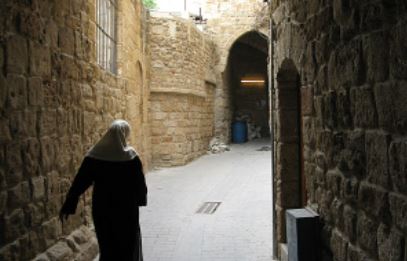Lebanon on the Brink: From Economic Collapse to Tech-Powered Recovery? Explore how this Middle Eastern nation navigates its devastating crisis, with hope emerging from a tech-driven future.
 |
| A nuanced look beyond media reports, uncovering the human cost of Lebanon's crisis and the hidden promise of technology-driven solutions. Image: Collected |
Lebanon, once a beacon of tourism and economic progress in the Middle East, now teeters on the brink of collapse. The declaration of its state and central bank's bankruptcy in April 2022 was a stark symbol of a nation ravaged by a perfect storm of unsustainable debt, political instability, and external shocks.
The consequences are dire. The Lebanese pound has plummeted, leaving basic necessities scarce and expensive. Unemployment is rampant, pushing over 80% of the population below the poverty line. The banking system, once a source of stability, lies in ruins, trapping deposits and leaving citizens feeling helpless.
A Glimmer of Hope: Technology as a Lifeline?
Amidst the despair, however, glimmers of hope emerge. Lebanon, with its young, educated population and entrepreneurial spirit, possesses the potential to leverage technology as a tool for recovery. Here are some promising avenues:
1. Fintech: Blockchain-powered solutions can create more transparent and inclusive financial systems, bypassing dysfunctional traditional banks and promoting financial inclusion. Imagine a future where Lebanese citizens can access microloans or securely transfer funds through their smartphones, even without a bank account.
2. E-commerce: Building a robust digital infrastructure can boost online commerce, creating new jobs and markets for Lebanese businesses. Picture a thriving online marketplace showcasing locally-made crafts, fresh produce, and unique cultural experiences to a global audience.
3. Remote work: Lebanon's skilled workforce can tap into the global remote work market, attracting foreign investment and generating much-needed income. Think of talented Lebanese programmers, designers, and writers collaborating with international companies from the comfort of their homes.
4. Agriculture and renewable energy: Utilizing technology for precision agriculture and renewable energy solutions can improve food security and reduce dependence on expensive imports. Imagine Lebanese farmers optimizing water usage and crop yields through AI-powered sensors, while rooftop solar panels generate clean energy for local communities.
5. Education and skills development: Investing in online education platforms and digital skills training can equip the Lebanese workforce for the jobs of the future. Envision a future where Lebanese youth gain access to world-class online courses and develop in-demand skills like coding, data analysis, and digital marketing.
Challenges and Cautions
Embracing technology is not a panacea. Significant hurdles must be overcome:
Bridging the digital divide: Ensuring affordable and equitable access to technology for all Lebanese citizens is crucial. This means investing in infrastructure, providing digital literacy training, and making internet access more affordable.
Cybersecurity: Robust cybersecurity measures are essential to protect against online threats and fraud. Lebanon needs to invest in cyber defenses and educate its citizens about online safety.
Government support: Creating a supportive policy environment that fosters innovation and attracts investment is critical. The Lebanese government needs to implement policies that incentivize tech startups, streamline regulations, and attract foreign direct investment.
Lebanon's path to recovery will be long and arduous. Technology, however, offers a powerful tool for rebuilding a more resilient and prosperous future. By harnessing the ingenuity of its people and embracing innovation, Lebanon can rise from the ashes and reclaim its place as a vibrant hub of the Middle East.
Remember, technology is not a magic bullet. It requires effective governance, investment in infrastructure, and a commitment to creating a level playing field for all.
Lebanon's story is a cautionary tale for nations around the world. It underscores the importance of responsible economic management, political stability, and harnessing the power of technology for social good. Only by addressing these fundamental challenges can Lebanon, and other nations facing similar struggles, hope to build a brighter future.
Share this article to raise awareness about Lebanon's plight and the potential of technology to aid its recovery.